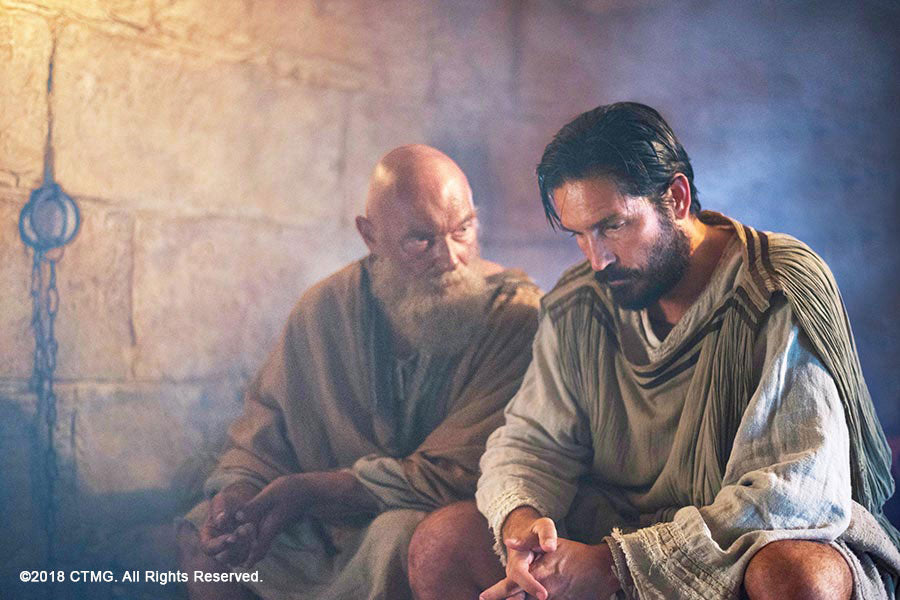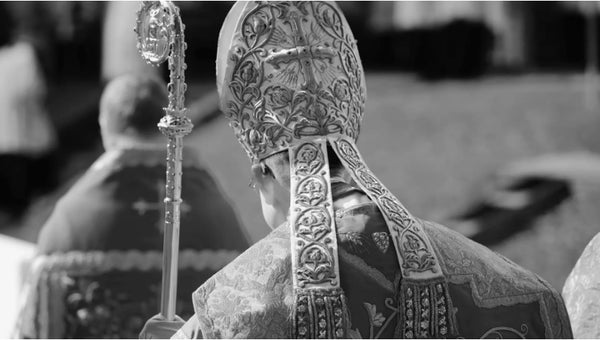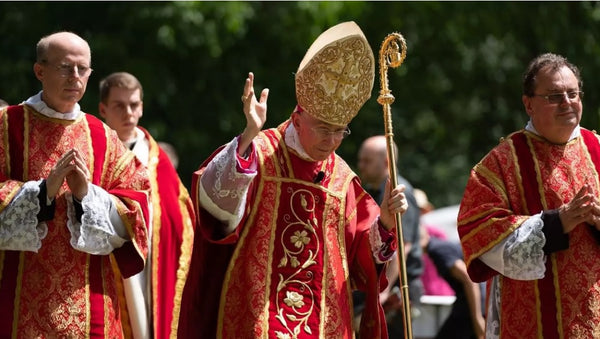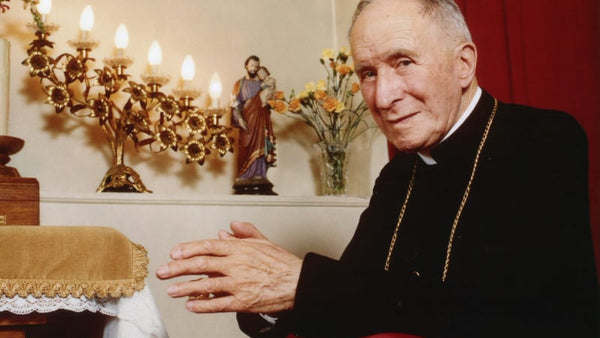"Paul, Apostle of Christ" Gives Viewers a Springboard for Further Study

The movie, Paul, Apostle of Christ, opened nationwide today. Joined by one of the priests of the SSPX, several members of the Holy Name Society, from Phoenix, screened the film in order to provide a review and guide for those faithful who may have interest in the story.
The director of the film, Andrew Hyatt, made strides to not only bring to life the historical accuracy of Rome during the time of the persecutions of Nero, but to portray the truth that Paul spent his life preaching. A Catholic himself, Hyatt spoke in a recent interview that he succumbed to the pull of making the film "as ecumenical as possible," but did not shy away from the true message of the Acts of the Apostles, which were the cornerstone of the movie.
While a sad reality of the "need" for marketing the film to a wider audience, Hyatt's approach did not seem to water down the story of St. Paul, explaining, "I don’t think I could ever say that those things didn’t shape me or form me, growing up in the Catholic tradition."
The opening scene of the film is powerful, with Father commenting during the movie, "Wow. A fantastic opening." The viewer is immersed into the gritty, desolate world of Nero's Roman insanity in 67 AD.
Christians were forced into hiding - those who were captured were immediately sentenced to brutal deaths in the Roman Circus, or doused in oil and set alight as lamps to light the city at dark. It was this latter depiction - done with reality but not an exaggerated, gratuitous violence, that sets the tone for the film.
As can be expected from a lower-budget movie, the story is not a high-impact Hollywood blockbuster. However, the minimal sets and relatively unknown actors, save for James Faulkner (St. Paul) and Jim Caviziel (St. Luke), portrayed the message successfully.
In this setting, Aquilla, the leader of the underground Christian community in Rome, is grasping for answers that will impact the 100 or so persecuted souls under his care. Paul, the face of the Christians and their source of strength has been imprisoned in the Mamertine Prison, made a scapegoat for the fires of Rome. The people are struggling, with kidnappings and orphans left for dead on the streets now the norm. This struggle for answers - whether to leave Rome for safety, or stay and face near-certain death under the persecution - is the underlying antagonist in the movie.
Into this dire scenario, Luke arrives in Rome, secreted in to speak with Paul, and to hopefully receive guidance for Aquila and the Christians. Paul, faced with the sins of his past life persecuting the faithful, and an old man at this point, is initially shown as a broken man, providing little guidance.
Over the course of the 90 minutes, Paul is shown regaining the strength - encouraged by his long-time companion Luke - that made him such an indomitable force in the early growth of the Church. Returning to Aquilla, who is a shepherd of a frightened flock, and himself a lost sheep without answers, Luke encourages him to trust in Our Lord for answers.
The rest of the film is smartly done - retracing the main points of the Acts of the Apostles via Paul's dictation to Luke in prison. A movie depicting Paul's life from beginning to end would be more of an epic tale. Hyatt craftily weaves the story of Saul's conversion into Paul, and his journeys throughout the Middle East and Rome as flashbacks.
Initially resistant to tell his stories to Luke for fear of overshadowing Christ, Luke pleads with Paul, explaining that his stories of hardship, courage, and determination will give strength to the churches that have been founded over the 34 years following Our Lord's Ascension.
The film scores high points for its measured, not overly-emotional message of Christian charity. Paul, from his cell, rebukes those who have come to rescue him, and who have brought violence against the unjust, yet lawful Roman authorities. "From whom do they receive their authority," he tells those of his flock who seek vengeance and retribution. While there may be some artistic license in the portrayal of Paul and his relationship with the Roman head of the Mamertine Prison, Mauritius, the spirit of Christian charity, kindness, and forgiveness is extremely well done.
It is rated PG-13, and for good measure - the violence shown is worthy of the rating, and may not be suitable for the most young children. To be noted for parents, there is a fleeting reference to immorality, when the Roman guard of the prison visits a tavern and is "offered a woman." However, there is no immodesty, and would, in Father's opinion, be acceptable to a parish of the SSPX.
There were no inaccuracies or errors in the film, with Father hopeful that this will encourage traditional Catholics to read more deeply the Acts of the Apostles - one of the more pivotal books of the New Testament.
Unlike Risen, which left much to be desired, and had much more of a Protestant feel and message, Paul, Apostle of Christ, comes recommended as either an introduction for those who know little about the struggles and ultimate triumph of the early Church through her martyrs, or to those who are familiar with the bravery of these early Christian saints and want to gain a new perspective on their stories.
And certainly for those Catholics in the West who only suffer persecution in the form of ridicule or social exclusion, Paul brings to the viewer an example of the kind of suffering - even to death - that we are called to for Christ, reflecting those in the East who face the same torments in 2018.
Finally, it is not a documentary - some artistic license was certainly used. However, it is one of the better products from Hollywood in quite some time. With its Catholic message intact, and the well-done cinematography within the constraints of its budget, it can be recommended to all Catholics.
Also in News from Tradition

Death of Bishop Bernard Tissier de Mallerais

Prayer Intention for Bishop Tissier de Mallerais
We ask for prayers for His Excellency Bishop Tissier de Mallerais.
On the morning of Saturday 28 September, after the Angelus, he fell on the stairs of the seminary in Ecône and lost consciousness. He is currently in hospital.

Archbishop Marcel Lefebvre on the Feast of Christ the King
The following sermon for the Feast of Christ the King was delivered by Archbishop Marcel Lefebvre, founder of the Society of Saint Pius X (SSPX), on October 29, 1989 in Dublin, Ireland.
Today we must pray to Our Lord Jesus Christ, we must pray to the Blessed Virgin Mary to remain true Catholics and to do everything possible to become saints. We must come to church frequently, pray in our church, receive the graces of the sacraments in order to become saints, to sanctify our souls and to go to heaven with all the members of our families and all those who kept the Catholic Faith here on earth and now enjoy the happiness of heaven.

Andrew Latham
Author